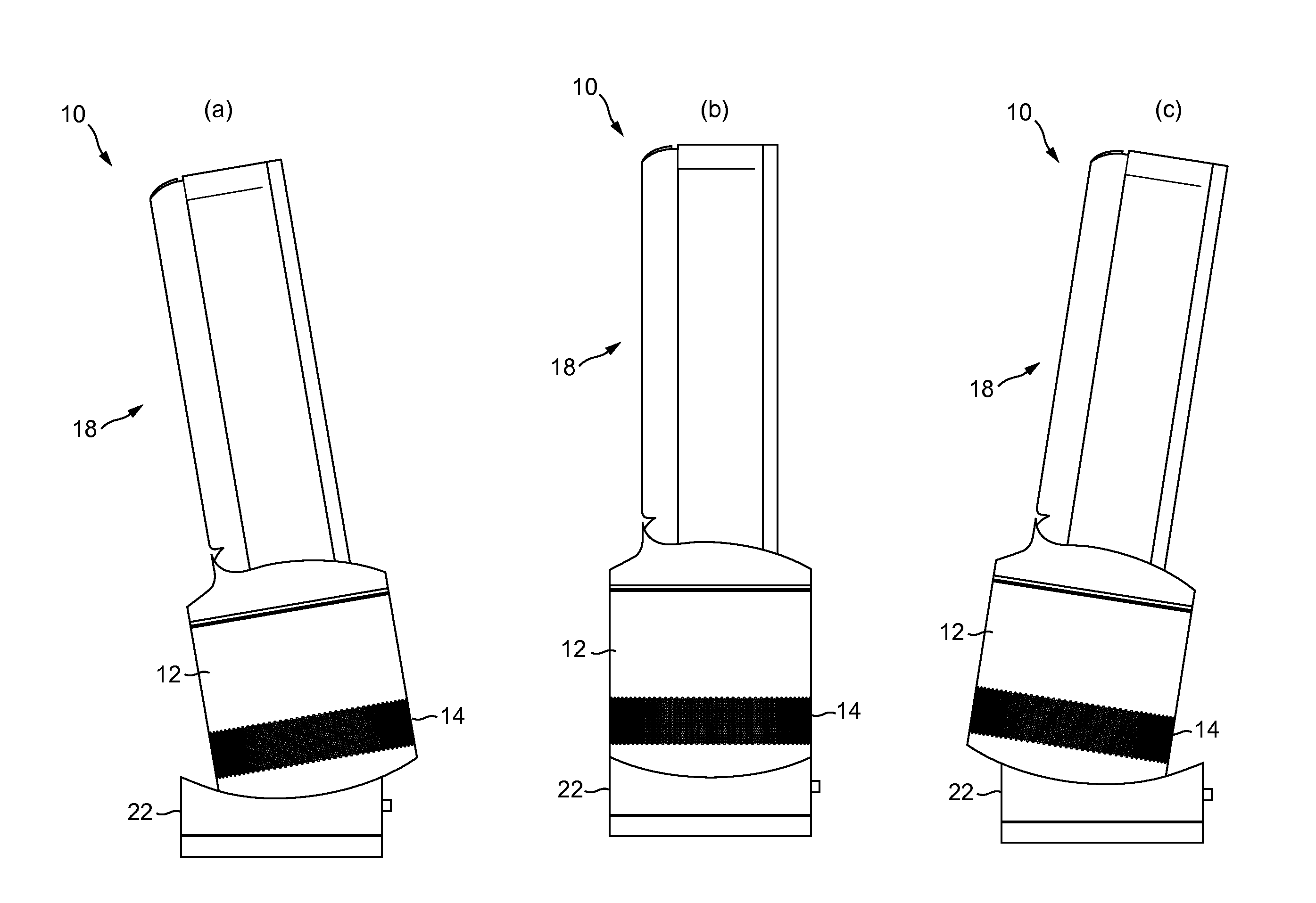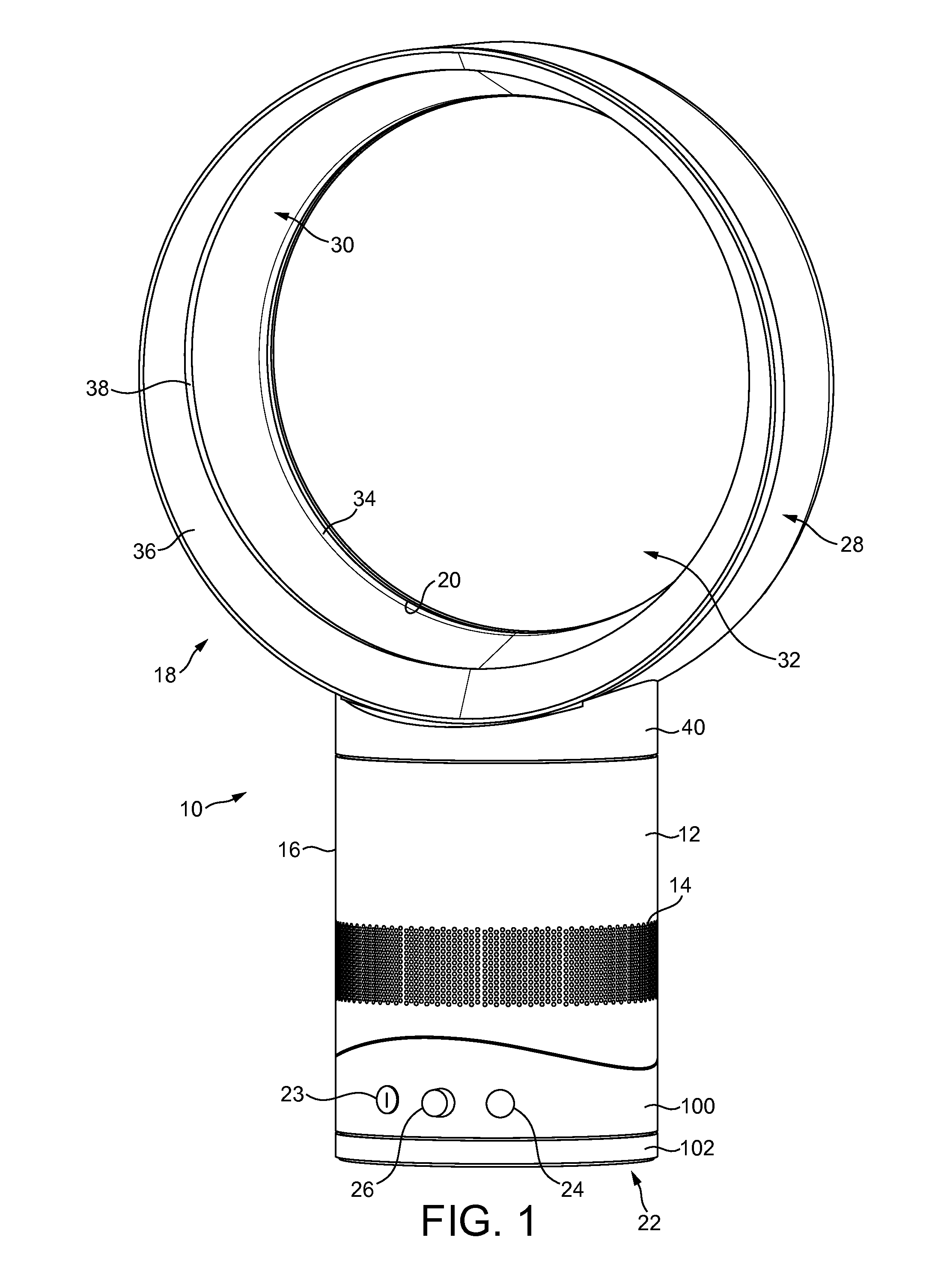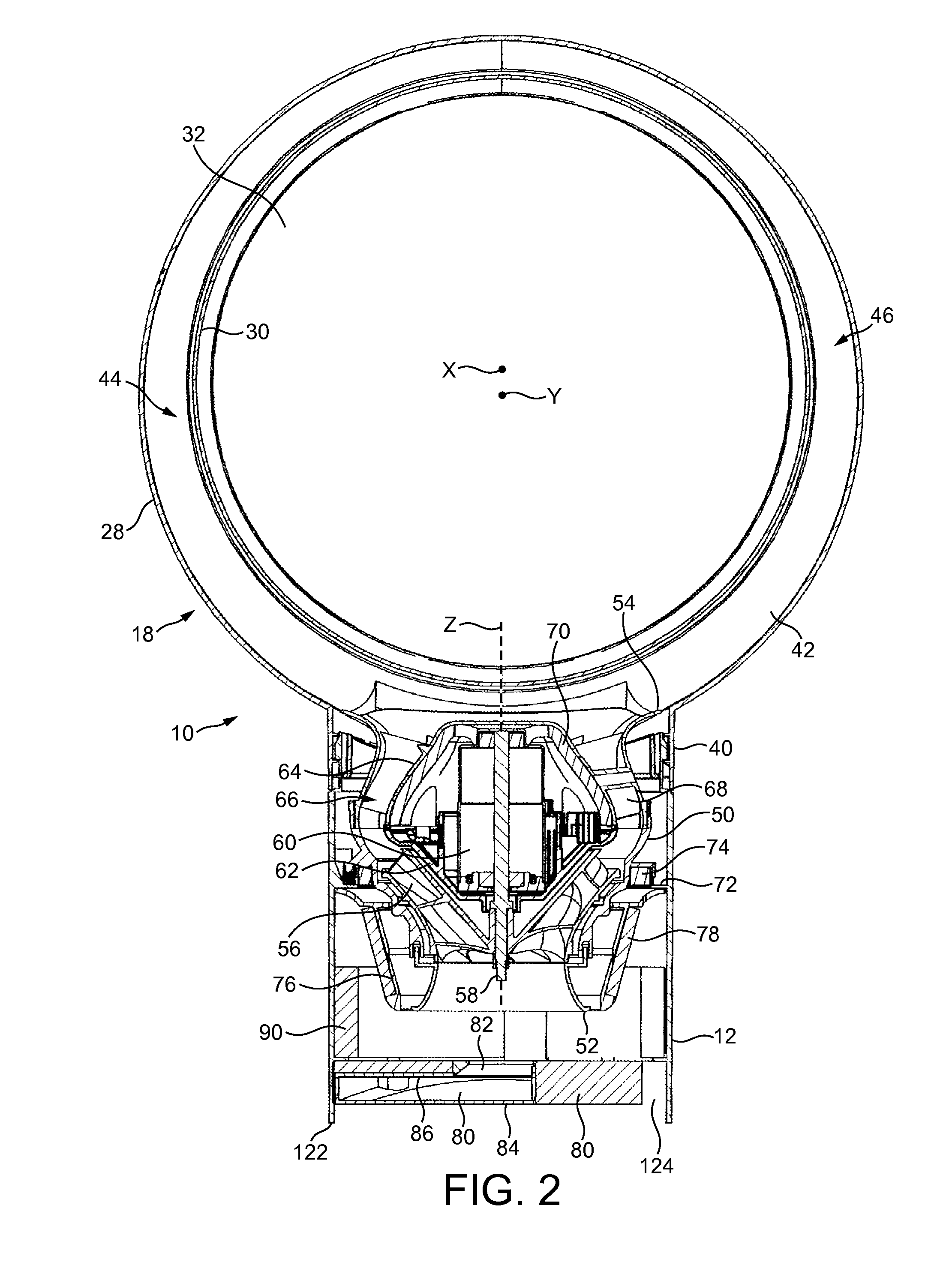Fan assembly
a technology of fan assembly and spring, which is applied in the direction of motors, liquid fuel engines, non-positive displacement pumps, etc., can solve the problems of reducing the friction force between the rails and runners, compromising the mechanism ability, and affecting the performance of the mechanism, so as to achieve the effect of relatively low spring relaxation over the lifetime of the fan assembly
- Summary
- Abstract
- Description
- Claims
- Application Information
AI Technical Summary
Benefits of technology
Problems solved by technology
Method used
Image
Examples
Embodiment Construction
[0039]FIG. 1 is an external view of a fan assembly 10. The fan assembly 10 comprises a body 12 having an air inlet 14 in the form of a plurality of apertures formed in the outer casing 16 of the body 12, and through which a primary air flow is drawn into the body 12 from the external environment. An annular nozzle 18 having an air outlet 20 for emitting the primary air flow from the fan assembly 10 is connected to the upper end of the body 12. The body 12 is mounted on a base 22 so as to allow the body 12 to tilt relative to the base 22. The base 22 comprises a user interface for allowing a user to control the operation of the fan assembly 10. In this embodiment, the user interface comprises a plurality of user-operable buttons 23, 24 and a user-operable dial 26.
[0040]The nozzle 18 has an annular shape. With reference also to FIGS. 2 and 3, the nozzle 18 comprises an outer wall 28 extending about an annular inner wall 30. In this example, each of the walls 28, 30 is formed from a se...
PUM
 Login to View More
Login to View More Abstract
Description
Claims
Application Information
 Login to View More
Login to View More - Generate Ideas
- Intellectual Property
- Life Sciences
- Materials
- Tech Scout
- Unparalleled Data Quality
- Higher Quality Content
- 60% Fewer Hallucinations
Browse by: Latest US Patents, China's latest patents, Technical Efficacy Thesaurus, Application Domain, Technology Topic, Popular Technical Reports.
© 2025 PatSnap. All rights reserved.Legal|Privacy policy|Modern Slavery Act Transparency Statement|Sitemap|About US| Contact US: help@patsnap.com



